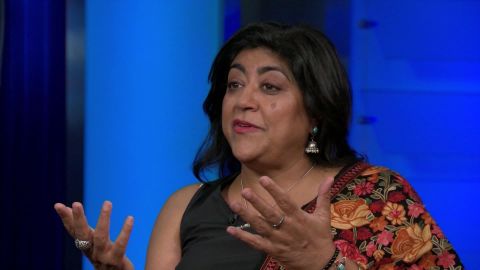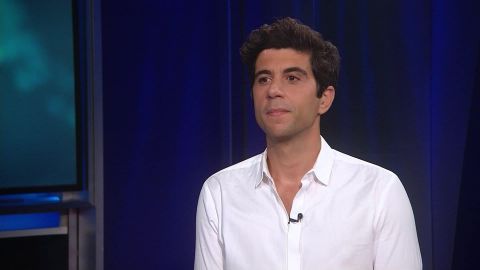Read Transcript EXPAND
CHRISTIANE AMANPOUR: Give us the temperature of what’s going on right now. It seems that there is a maybe more serious search for solutions than even after Parkland, even after Sandy Hook. Is that right? Are we absorbing the atmosphere correctly?
SCOTT JENNINGS, REPUBLICAN PUBLIC RELATIONS CONSULTANT: I think so. I think that we’ve reached a tipping point in public opinion in the United States on this issue. You know, that Congress did act after Parkland. They did pass some legislation to upgrade the background check system, it’s already in place called NICS. They appropriated a lot of money to — for school safety. So, there was some action. But none of this, of course, is a panacea for the big kinds of events that we’ve seen and the ones you’ve mentioned. And now, I think there is a legitimate question going on among the American people which is, what is wrong with us and what can we do about it? And I do believe there are serious conversations going on among the people that need to be having them, most importantly, of course, the president of the United States.
AMANPOUR: Well, you did see and listen, at least, to all those snippets of soundbites which two of them were interviews that I did, one of them was a radio interview with Senate Majority Leader Mitch McConnell. So tell me, the “New York Times” reports that you have been in touch with him, that you’re urging him to move on this issue of gun legislation. Can you fill us in with some of your conversations, what you’re saying, what he’s saying to you? JENNINGS: Well, I don’t usually divulge the private communications I have with people who seek my counsel. However, I would say I told him much of what I wrote in “USA Today” and a lot of other American newspapers recently that people of good will can come together here and try and do what we do. I think the American people understand, there is no panacea, there is no magic wand that will make all the evil and the crazy go away out of humanity, but there are things we can try to do to, at least, address and be responsive to this American question right now of how are we going to try to stop some of these events from happening. I told him I thought background checks was a pretty simple proposition, if you could find language that satisfies all the parties. I told him that I thought the red flag laws where you could give people these avenues to report people that they thought could be a danger to themselves or others, and that seems like it has a little bit of momentum. So, I thought some of these ideas were worth bringing up, and I also told him that I thought it was all worth bringing up if the president, Donald Trump, is going to get behind it. Ultimately, he’s the key. To pass a law, you’ve got to get 60 votes in the Senate, the House, of course, and a presidential signature. If President Trump signals that he’ll sign a package of something, then that will probably pretty easily bring a package along in the U.S. Senate.
AMANPOUR: OK. So, here’s a little bit of a soundbite from President Trump when he was asked about this this week on Tuesday. Let’s just listen and we can talk about it.
(BEGIN VIDEO CLIP)
DONALD TRUMP, U.S. PRESIDENT: I am convinced that Mitch wants to do something. I’ve spoken to Mitch McConnell. He’s a good man. He wants to do something, he wants to do, I think, very strongly. He wants to do background checks, and I do too, and I think a lot of Republicans do.
About This Episode EXPAND
Scott Jennings and Christiane Amanpour discuss the latest instance of gun violence in the United States between police officers and a gunman in Philadelphia. Journalist Jaafar Abdul Karim explains his efforts to build bridges between the far-right and Germany’s migrant community. Gurinder Chadha and Sarfraz Manzoor tell Hari Sreenivasan about their new film “Blinded by the Light.”
LEARN MORE


